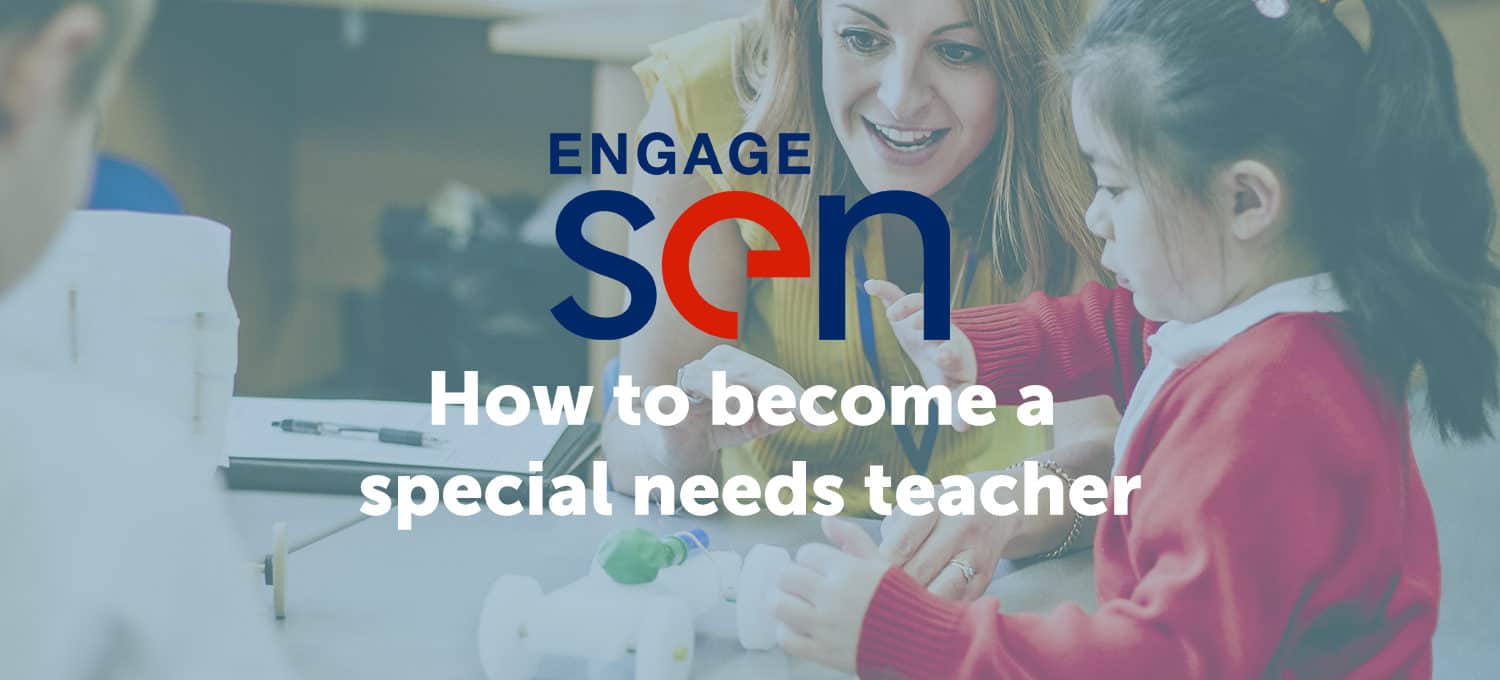
12th December 2019
How To Become A Special Needs Teacher | Engage Education
Why are SEN teachers so important?
A SEN teacher plays a vital role in a school. They enable pupils who have a variety of learning needs to learn alongside their peers. All classrooms should be inclusive so that all students have the same opportunities. This includes ensuring that students with SEN have an equal chance of learning.
According to the Department for Education, just under 1.5 million pupils in England have special educational needs. An increase of 77,000 from 2021. But sadly, the number of SEN teachers doesn’t meet the demand. Only 12.6% of those receive SEN support (up from 12.2% in 2021).
SEND teachers work with pupils who require extra support to reach their full educational potential due to a learning or physical disability. SEND teachers are relied upon to identify individual needs and to be responsible for creating a safe, stimulating, and supportive learning environment, for either small groups of pupils or entire classes.
SEND teachers will typically work with pupils who have the same or similar SEND requirements, which could be:
- Sensory impairments
- Physical disabilities
- Speech and language difficulties
- Learning difficulties (such as dyslexia)
- Autism
- Social, emotional, and/or mental health needs
As a SEND teacher, you will typically work in a mainstream school with SEND pupils or in a specialised school, though you may also work in a Pupil Referral Unit or another location. Special schools will have more advanced resources to assist SEND pupils with their day-to-day needs and learning. To be able to use these specialised resources, you might be required to undertake extra training.
What qualifications do I need to become a special needs teacher?
All SEND teachers are required to have QTS and mainstream teaching experience. You can get QTS by taking a Bachelor of Education (BEd) degree, or a BA or BSc with QTS. If you are already a graduate, you can take a PGCE with QTS course, such as the Engage Teacher Training Programme.
All teacher training courses have a SEND component to them so all qualified teachers are equipped to teach pupils with special needs or disabilities.
If you want to teach in a special school for pupils with a specific need, you may also have to learn specialist skills. These skills could include learning to teach Braille for pupils with visual impairments, or sign language for those with hearing impairments. Some schools also require the use of specialist equipment, such as hydrotherapy pools or special communication devices. You can undertake extra training either within a special school or with a specialised training provider to gain the skills needed to fulfill your role.
What skills are required for a special needs teacher role?
A SEN teacher needs a very specific range of skills and qualities in order to ensure that a SEN student meets their full potential. These include:
- Strong interpersonal skills
- Excellent communication skills
- Behaviour management skills
- Teamworking skills to liaise with all the other professionals involved in the student’s support, such as teachers, teaching assistants, speech therapists and educational psychologists
- Empathy with students and parents
- A positive attitude
Is there opportunity for professional development in SEND careers?
There is plenty of opportunity for professional development as a SEND teacher. You can complete further postgraduate professional development in different specialist areas. This can be achieved at various levels; from certificates to a diploma or Masters. You can also choose to concentrate your work, developing your expertise with particular learning difficulties such as dyslexia. If you are interested in working with students who are visually impaired then you can learn Braille, and sign language for those who are hearing-impaired.
SEND Careers with Engage
You can check out the rest of the My SEND Career series for more information on the specific routes available to people wanting to work with children with special education needs or disabilities, or visit the SEND page for more information.
If you would like a new role teaching in a SEND setting on a permanent, long-term, or short-term basis, full or part-time, our expert SEND team will be able to find the perfect role for you at one of our fantastic partner schools. You can register with the SEND team here.
SEND Careers with Engage
If you would like a new role teaching in a SEND setting on a permanent, long-term, or short-term basis, full or part-time, our expert SEND team will be able to find the perfect role for you at one of our fantastic partner schools.
Book a call!Recommended for you
Importance of SEND inclusion in mainstream schools
With reports of SEND pupils being increasingly “pushed out” of mainstream schools...
- SEND
- •
- 5 Min Read
Do I need a qualification to work in a SEND school as a teaching assistant?
What is SEND? SEND stands for Special Educational Needs and Disabilities. SEND...
- SEND
- •
- 5 Min Read
4 areas of SEND: Sensory
Sensory & Physical Needs When a child is born, we expect them...
- SEND
- •
- 5 Min Read


